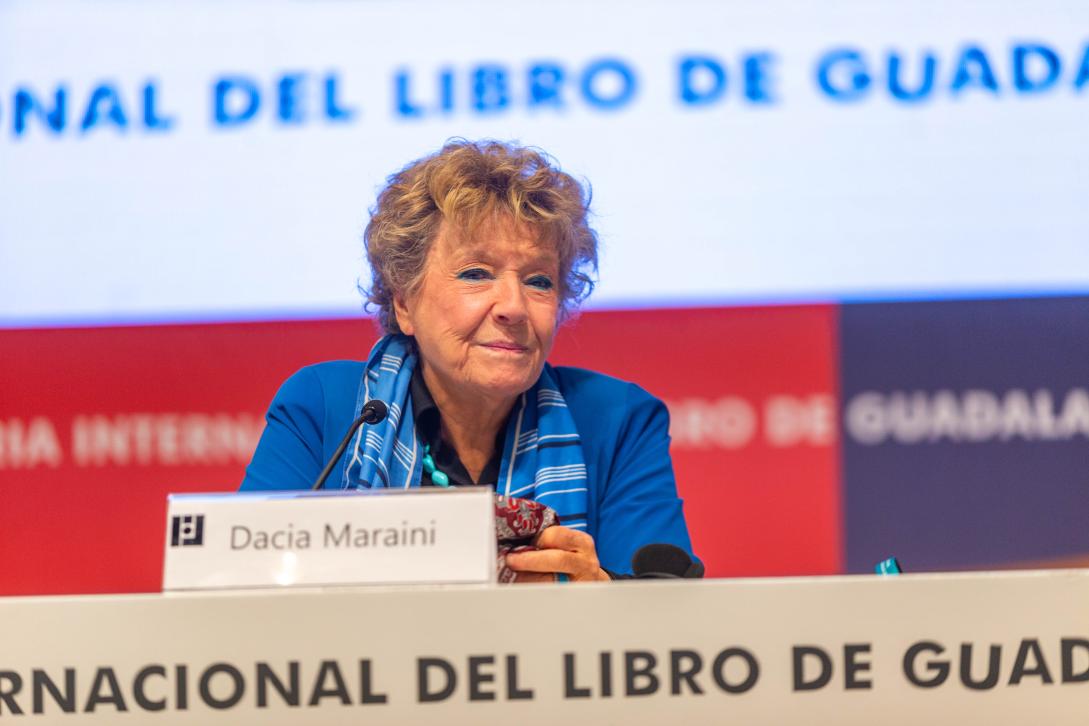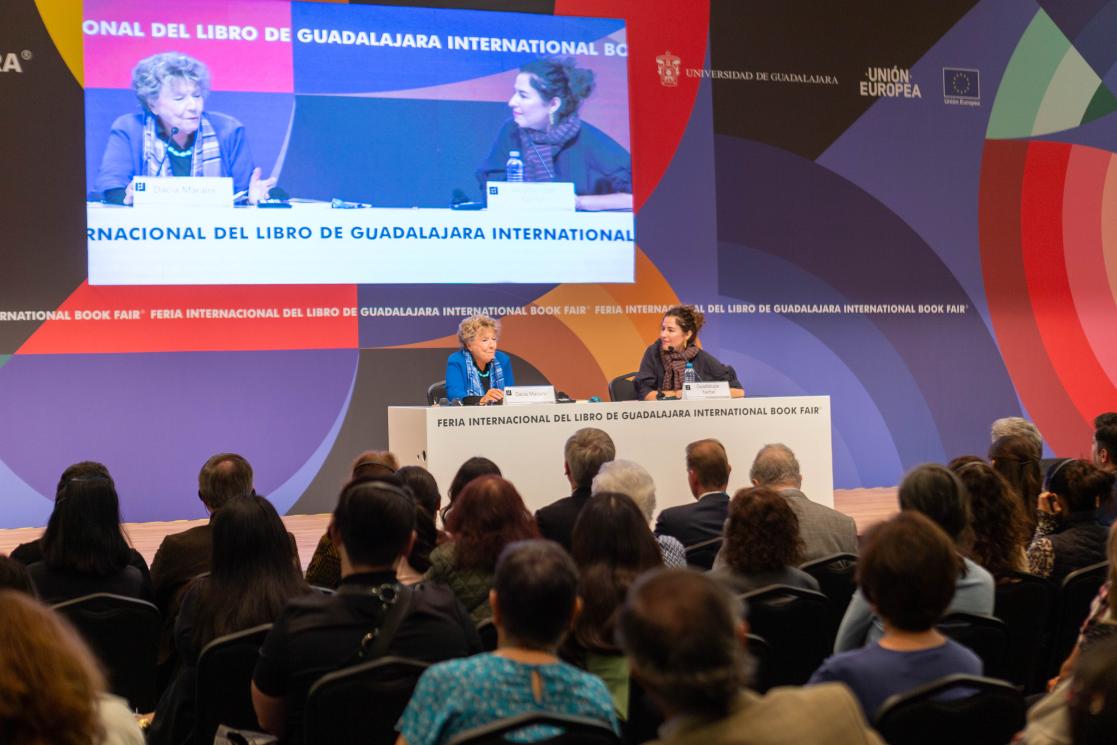“Literature is the opposite of war” - A chat with Dacia Maraini at FIL Guadalajara

“Literature is peaceful. Because literature creates union, creates knowledge, creates relationships, creates friendships, creates affection. It is the opposite of war.”
Maraini has been “the dean” of more than 70 authors from the EU 27 member states and Ukraine, participating at the EU Pavilion, as Guest of Honour. These are the spokespersons of the “Union of Cultures” which the EU has promoted at the FIL Guadalajara 2023.
“An initiative like this one it is an initiative for peace” said Maraini during her opening speech.
Dacia Maraini is an award-winning writer, poet, playwright, screenwriter, filmmaker, journalist, and activist. She spent her early childhood in Japan where, in 1943, because of her parents’ anti-fascist views and refusal to sign papers declaring allegiance to Mussolini’s Fascist Republic of Salò, she, at age seven, with her family, was confined to a Japanese prison camp in Nagoyo. After Japan, she and her family returned to Sicily, and later she moved to Rome.
As a writer and political activist, she has given voice to women silenced across time and space, and fought against abuse and violence against children and women. She is the author of over twenty novels, many short stories, several plays, collections of poetry, essays, and reportage. Maraini’s books have been translated into twenty-two languages, and many of her novels have been translated into English.
Some of her bestsellers — Storia di Piera, L’età del malessere, La lunga vita di Marianna Ucrìa, Voci, and Memorie di una ladra — have been adapted into films. She has written screenplays for directors, including Marco Ferreri, Margarethe Von Trotta, and Pier Paolo Pasolini.
She was the co-founder of the feminist theatre La Maddalena in Rome, and her plays are staged in Italy and around the world. She has won numerous awards, including the very prestigious Campiello and Strega Awards.
Dacia Maraini was a finalist for the Man Booker International Prize and was a nominee for the Nobel Prize in Literature.

FIL Guadalajara





